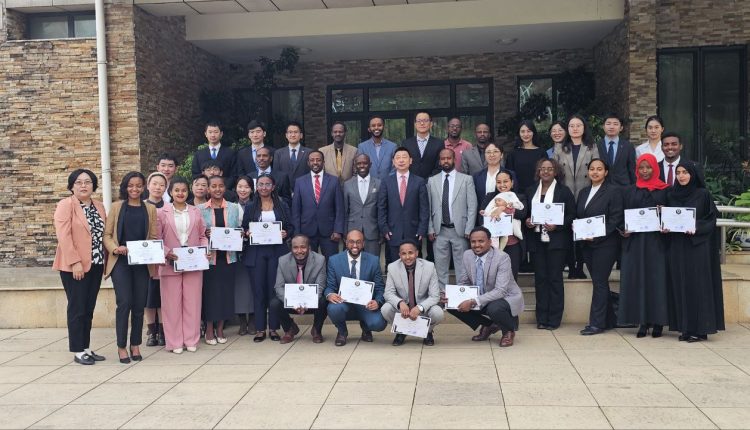Language training bridges Ethiopia-China cultural and strategic cooperation for mutual benefit
Addis Ababa, November 27, 2025 (FMC) —An online Chinese language training program for Ethiopia’s young diplomats bridges cultural and strategic cooperation between Ethiopia and China, providing skills that officials say will strengthen bilateral ties and enhance Ethiopia’s diplomatic capacity, officials say.
Young Ethiopian diplomats have successfully completed an online Chinese language training program, marking a strategic investment in the country’s diplomatic capacity and reinforcing cultural and people-to-people ties with China.
The program, launched in April through a collaboration between the Confucius Institute at Addis Ababa University and the Institute of Foreign Affairs (IFA), provided months of intensive language instruction, equipping the diplomats with skills essential for international engagement and bilateral cooperation.
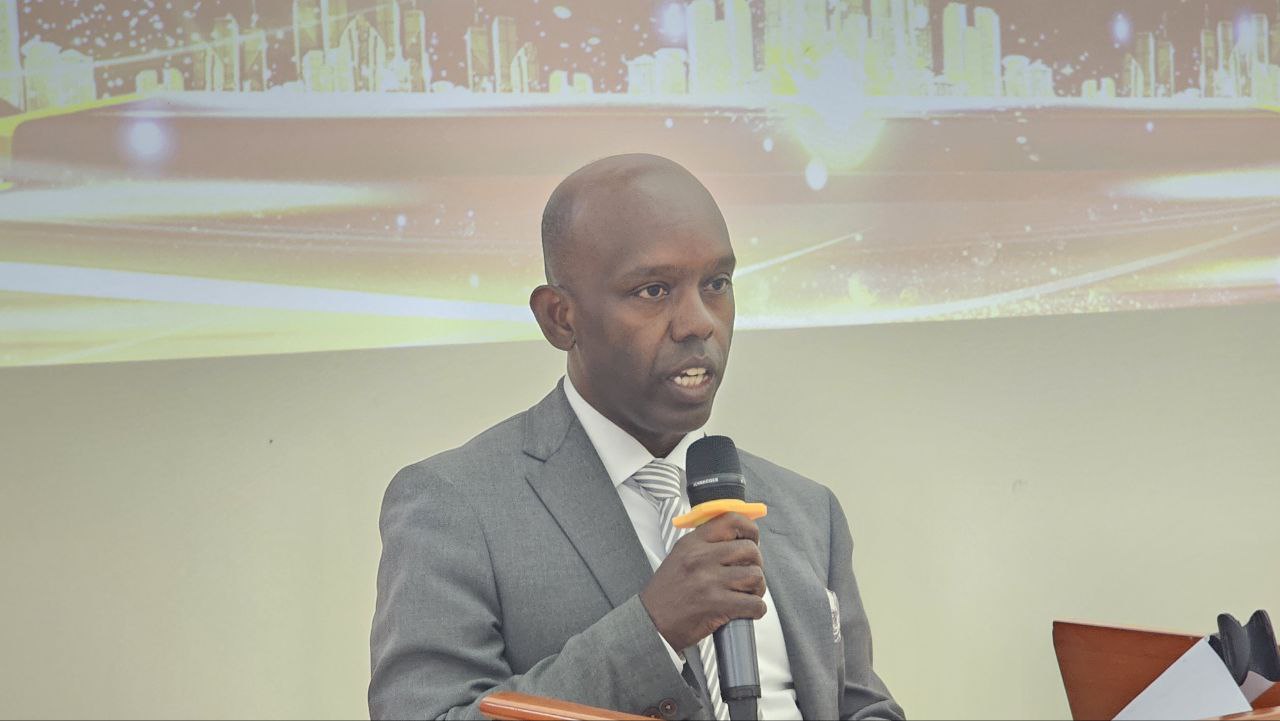
Speaking at the closing ceremony held in Addis Ababa on Thursday, Deputy Director General for Middle East and Pacific Affairs at the Ethiopian Foreign Ministry, Mr. Amha Hailegiorgis, said the training is more than the completion of a course; it is “the forging of new bridges of understanding between our two great nations.”
He emphasized that language is “the key that unlocks not only dialogue but also mutual respect and trust,” and equips diplomats to serve as front-line cultural ambassadors.
He noted that the program strengthens practical cultural cooperation and people-to-people exchanges under frameworks such as FOCAC and the Global Civilization Initiative.
Mr. Hailegiorgis highlighted that Ethiopia values human capacity development, particularly in skill transfer, and that equipping young diplomats with language skills is a strategic imperative.
He said that Mandarin is more than a communication tool; it is a gateway to understanding China’s civilization, culture, and policy approach.
He expressed gratitude to the Confucius Institute, IFA, and the Chinese Embassy for coordinating the program and providing this opportunity, noting that the skills acquired are essential instruments for Ethiopia’s diplomatic effectiveness.
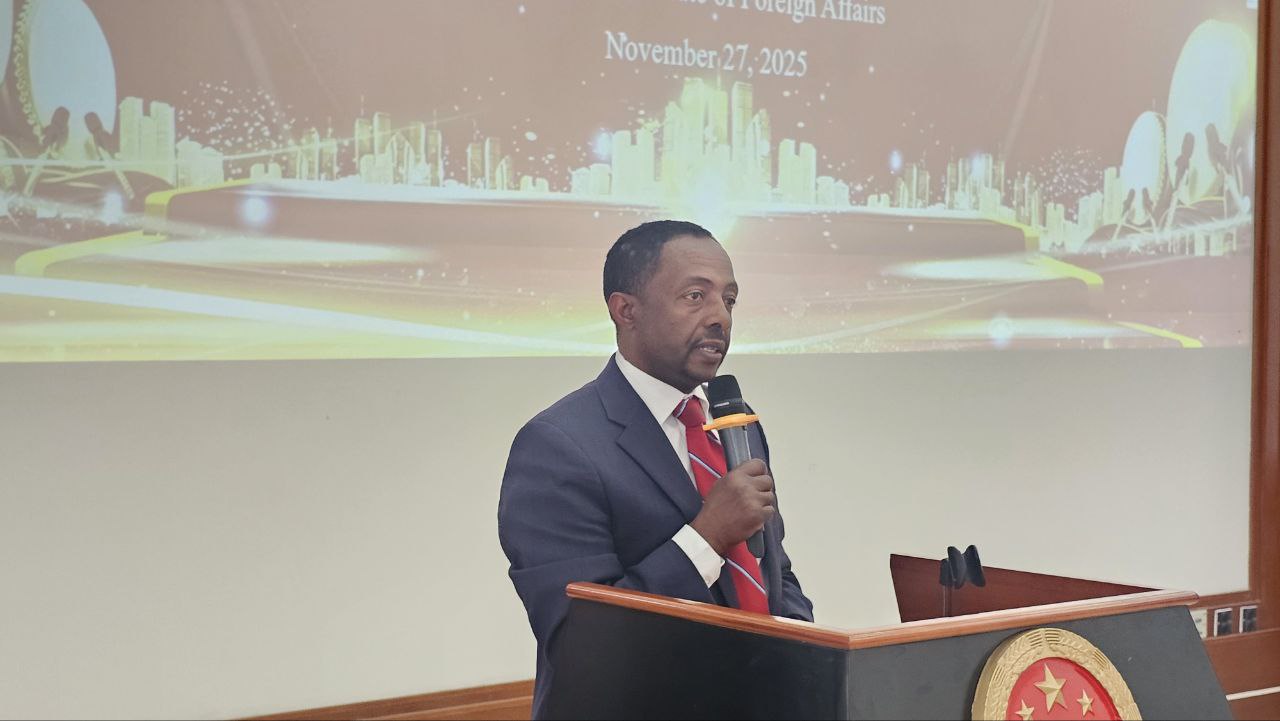
Meanwhile, Addis Ababa University President Samuel Kifle stressed the university’s role as a flagship national institution in higher education, highlighting the Confucius Institute at Addis Ababa University as a global model among Confucius Institutes. He recalled its establishment 12 years ago and praised Dr. Gao Lili for leading the center.
The AAU president emphasized that the institute supports not only university-level students but also high school teacher training programs in Oromia Regional State’s Special Boarding Schools and professionals in industry, reflecting the university’s responsibility to Ethiopia’s broader social, economic, and diplomatic development strategy.
Dr. Samuel noted that Ethiopia and China share 55 years of diplomatic ties and historical and cultural parallels, including struggles for independence and national development.
He said that Ethiopia looks to China’s experience of prosperity over four decades as a model to accelerate its own national development.
He highlighted that the Confucius Institute plays a crucial role in ensuring that diplomatic language training aligns with government priorities and the professional development of Ethiopia’s young diplomats.
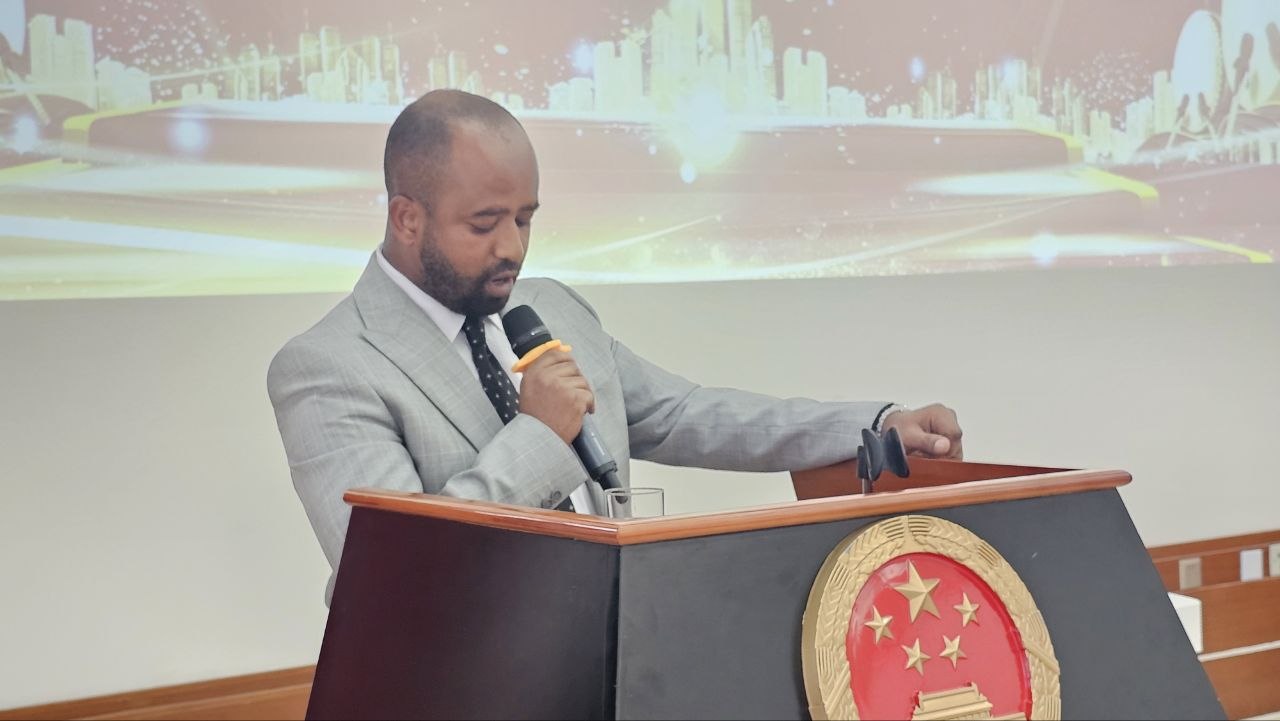
For his part, Mohamed Rafi Abaraya, Deputy Executive Director of the Institute of Foreign Affairs, underscored that language competence is central to modern diplomacy, providing insight, perspective, and the ability to build trust.
He emphasized that Chinese language learning allows Ethiopian diplomats to engage Chinese policy debates in their original form, understand negotiation culture, and convey national interests with clarity and respect.
Mr. Mohamed described the program as a strategic investment in Ethiopia’s diplomatic capacity, preparing diplomats to navigate shifting global power dynamics.
He praised contributors to the program, including Ms. Yulia for her voluntary commitment and Professor Gao Lili for her leadership at the Confucius Institute.
He highlighted the importance of continued cooperation between AAU, the IFA, and the Chinese Embassy to ensure sustained language proficiency and strengthen Ethiopia’s diplomatic corps for future challenges.
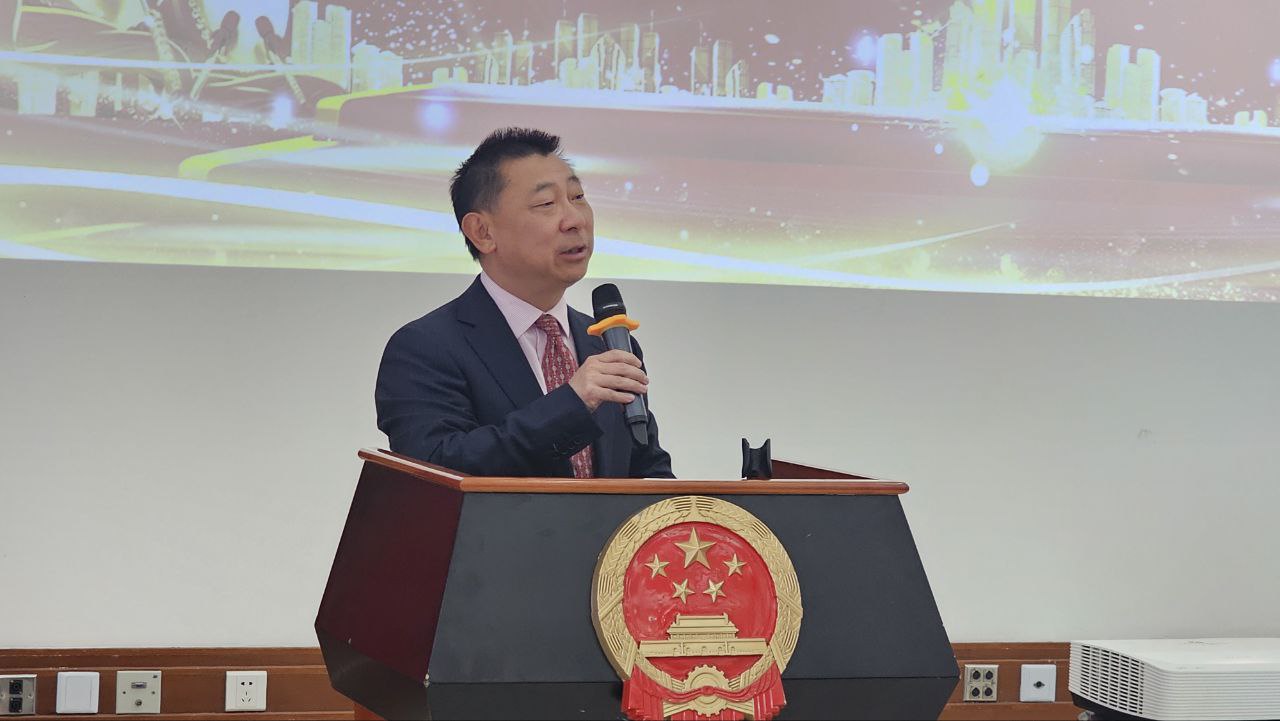
Delivering his remarks, Chinese Chargé d’Affaires in Addis Ababa, Mr. Sun Mingxi, congratulated the graduates and highlighted the role of language skills in advancing pragmatic cooperation and mutual development.
He noted China’s contributions to Ethiopia through investment, trade, infrastructure projects such as the Ethio-Djibouti Railway, Addis Light Rail, CBE headquarters building, and Friendship Square, as well as Chinese medical teams and scholarship programs.
He stressed that understanding China’s major-country diplomacy through language proficiency allows Ethiopian diplomats to engage effectively in multilateral platforms, including the United Nations and BRICS, and to contribute to the welfare of both nations.
The program reflects ongoing collaboration between Ethiopia’s government, Addis Ababa University, the Institute of Foreign Affairs, and the Chinese Embassy, ensuring the development of future generations of well-prepared Ethiopian diplomats.

